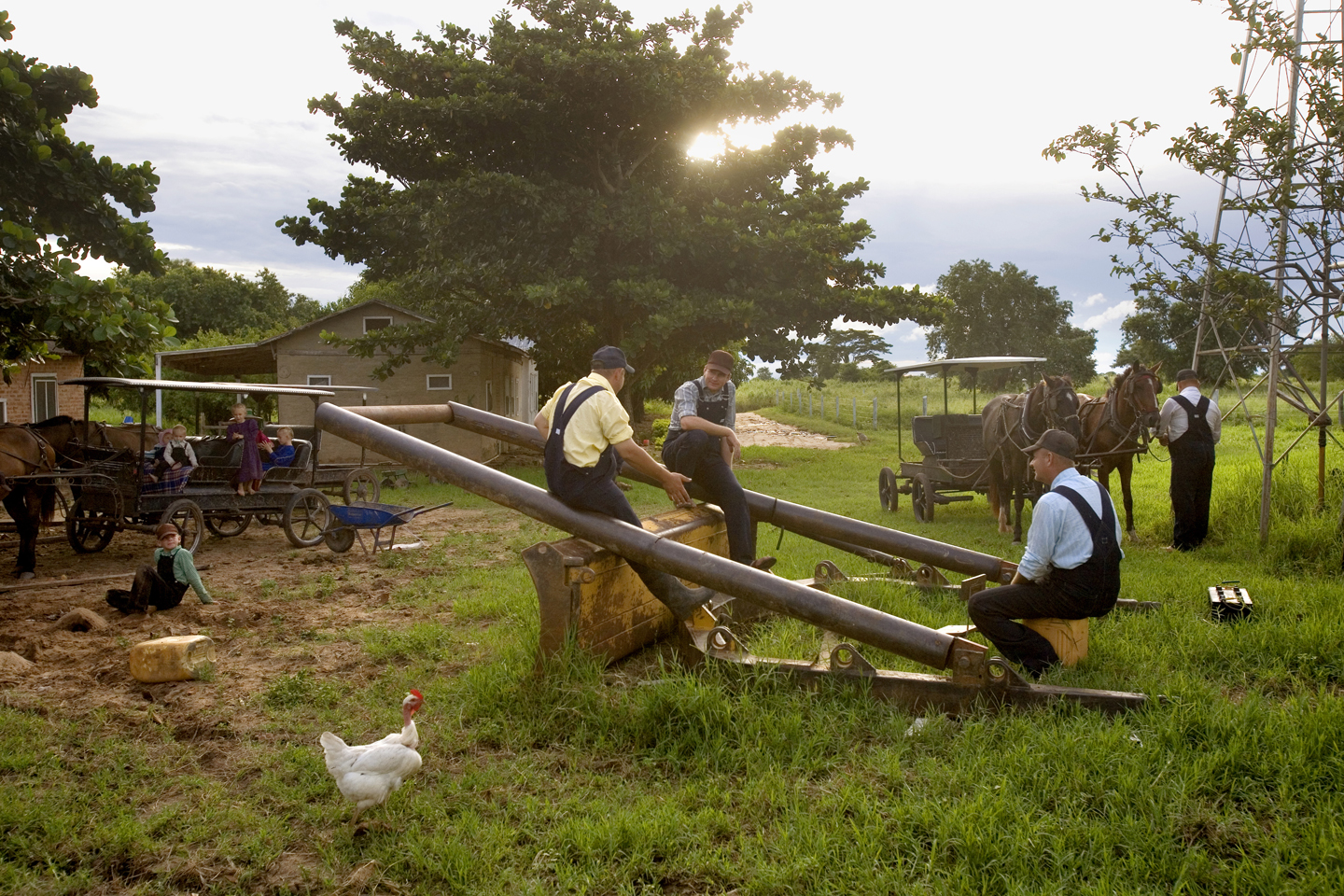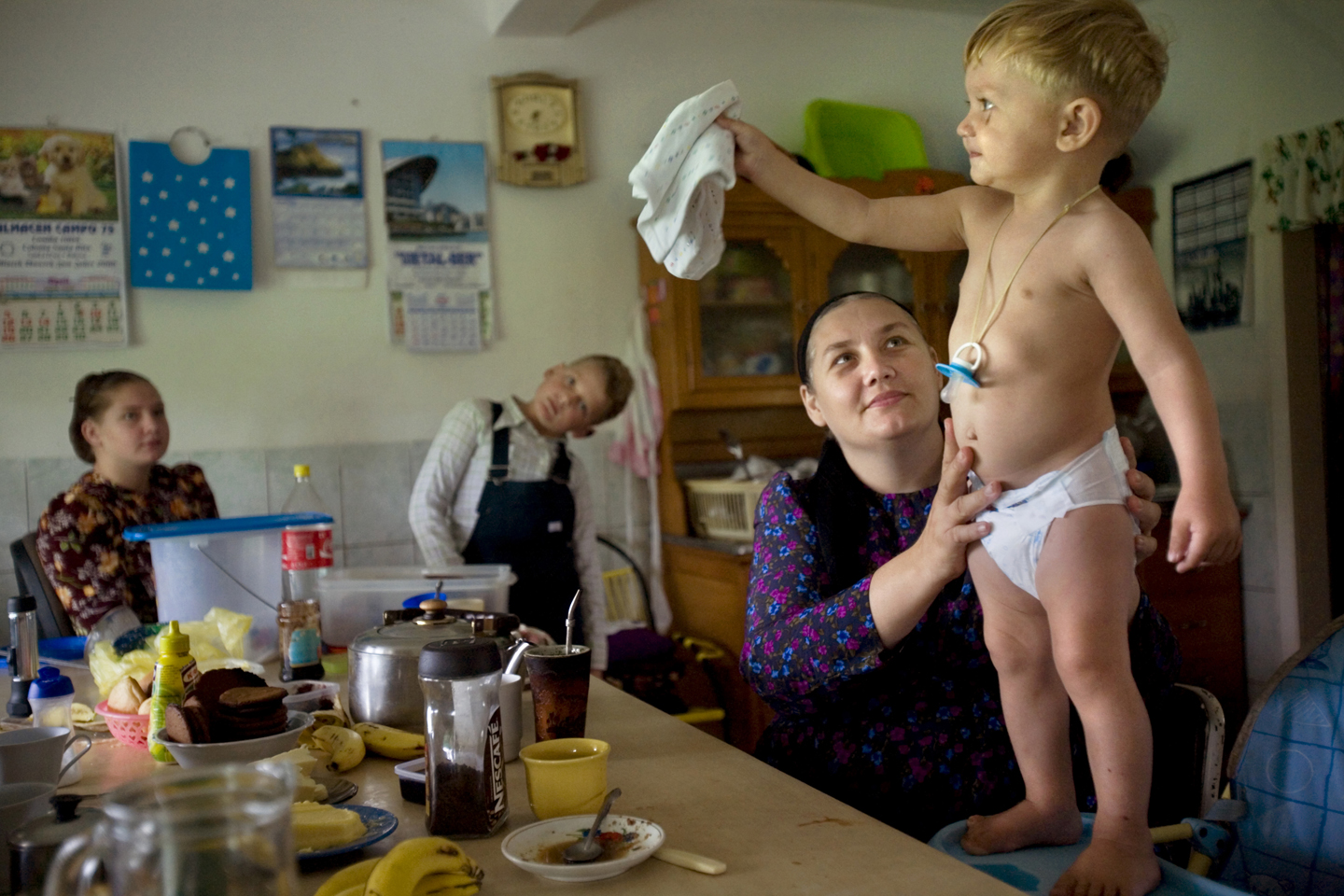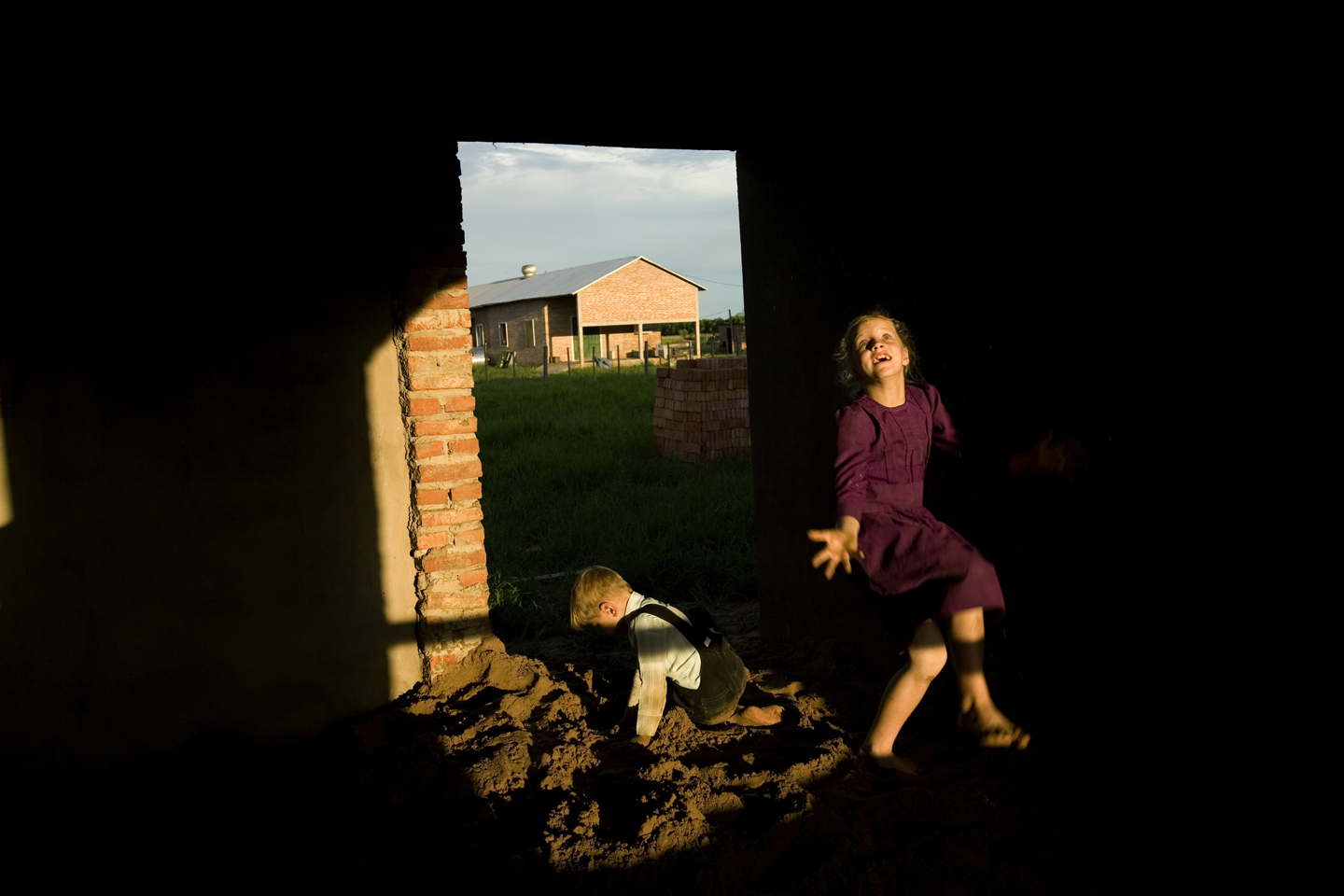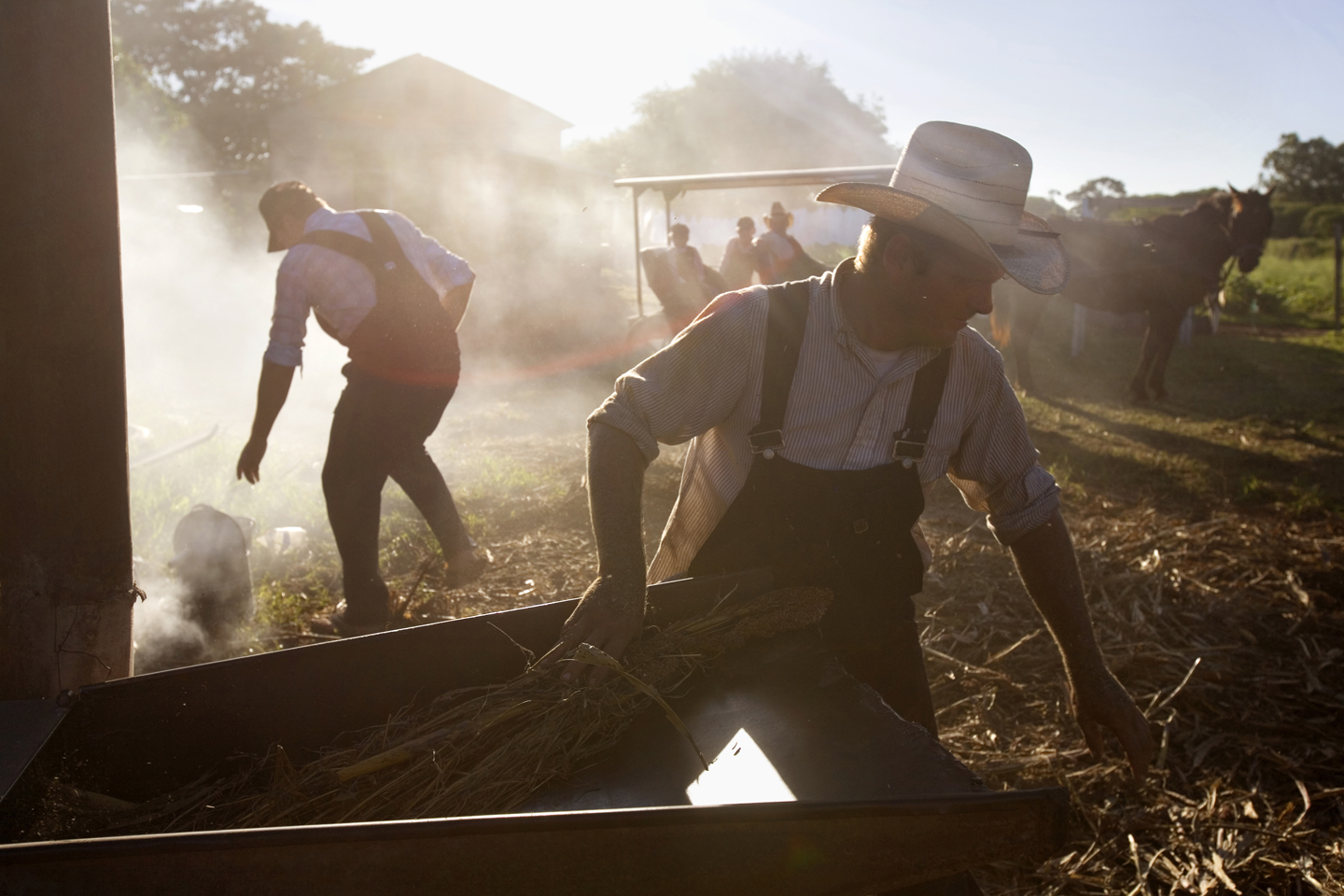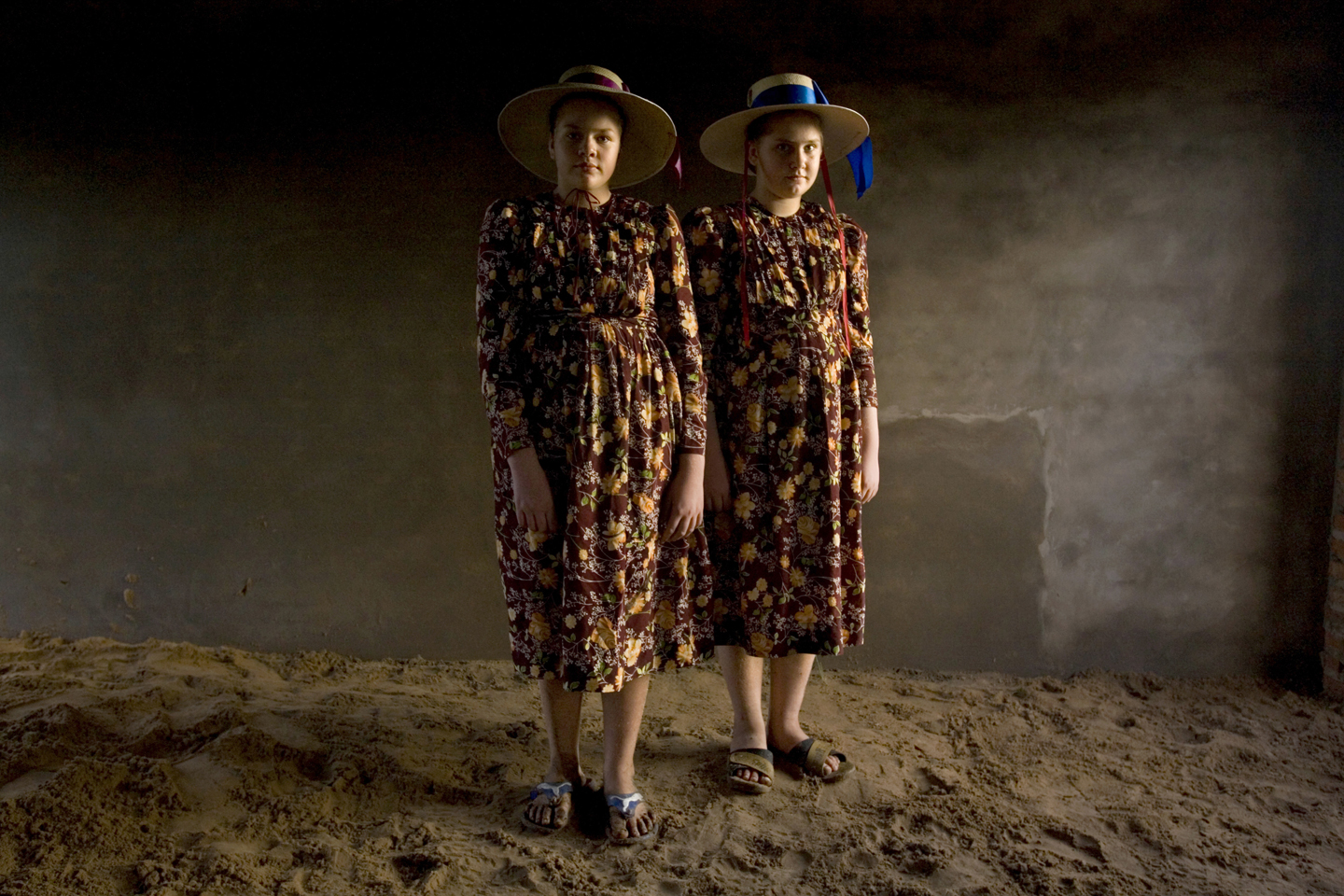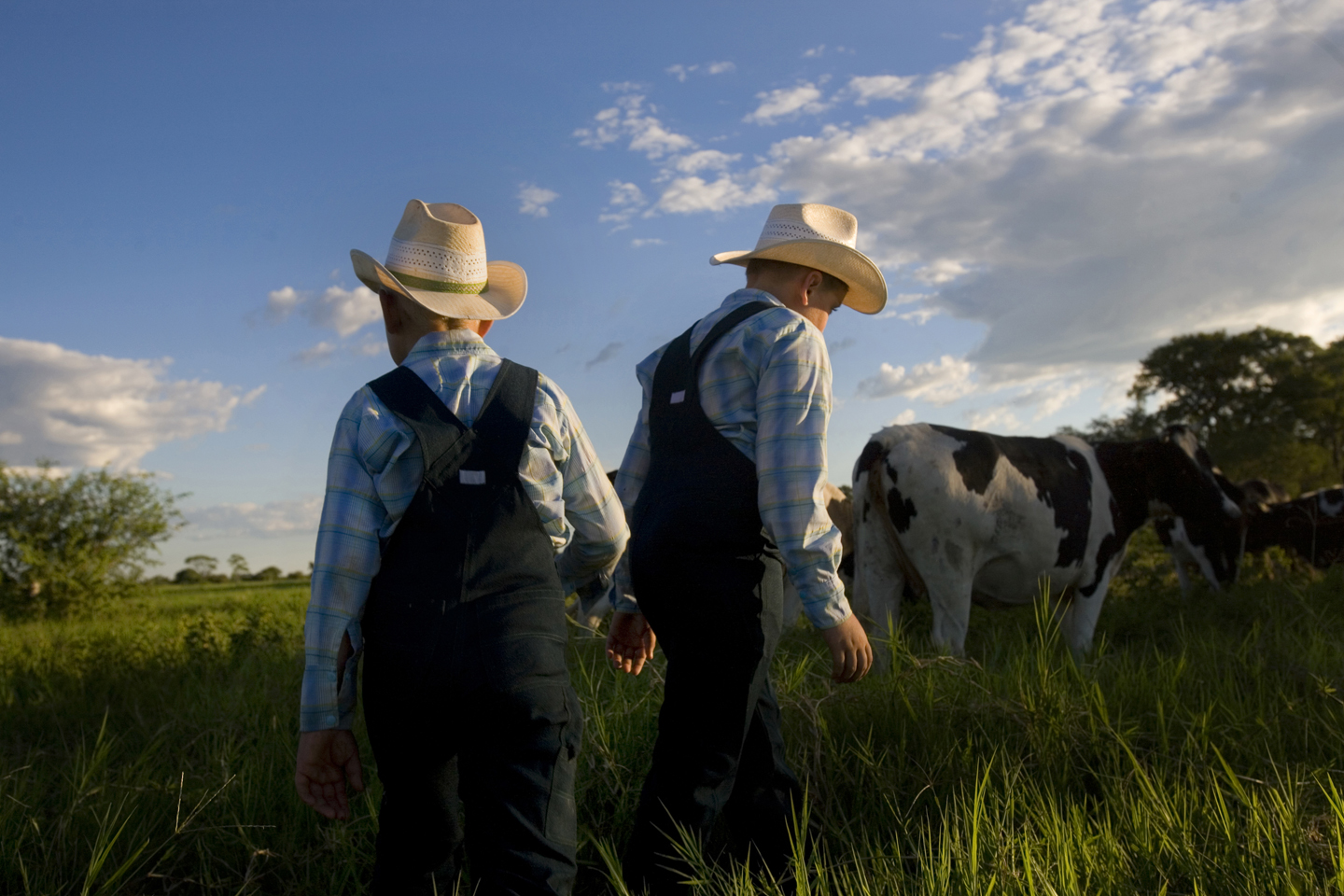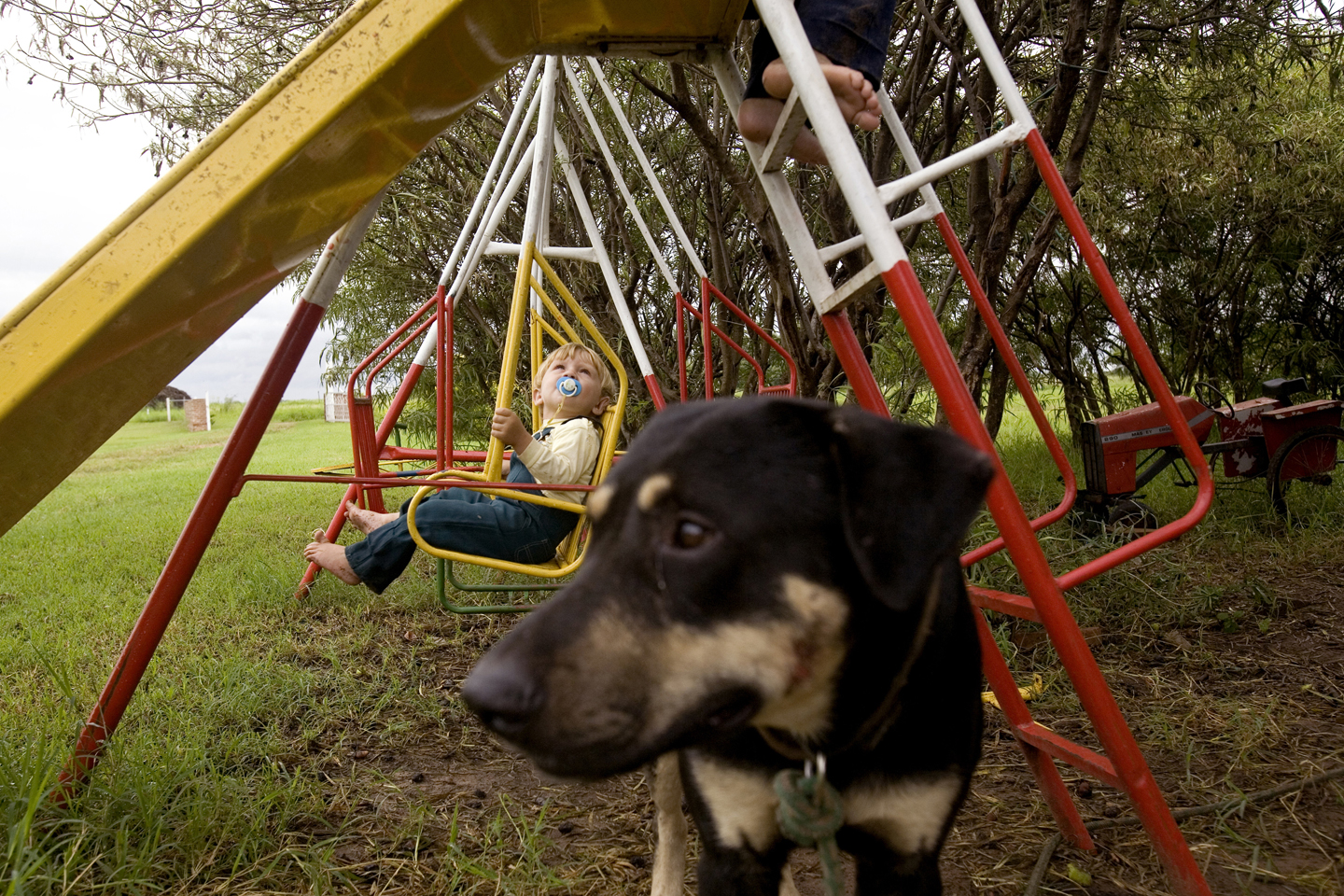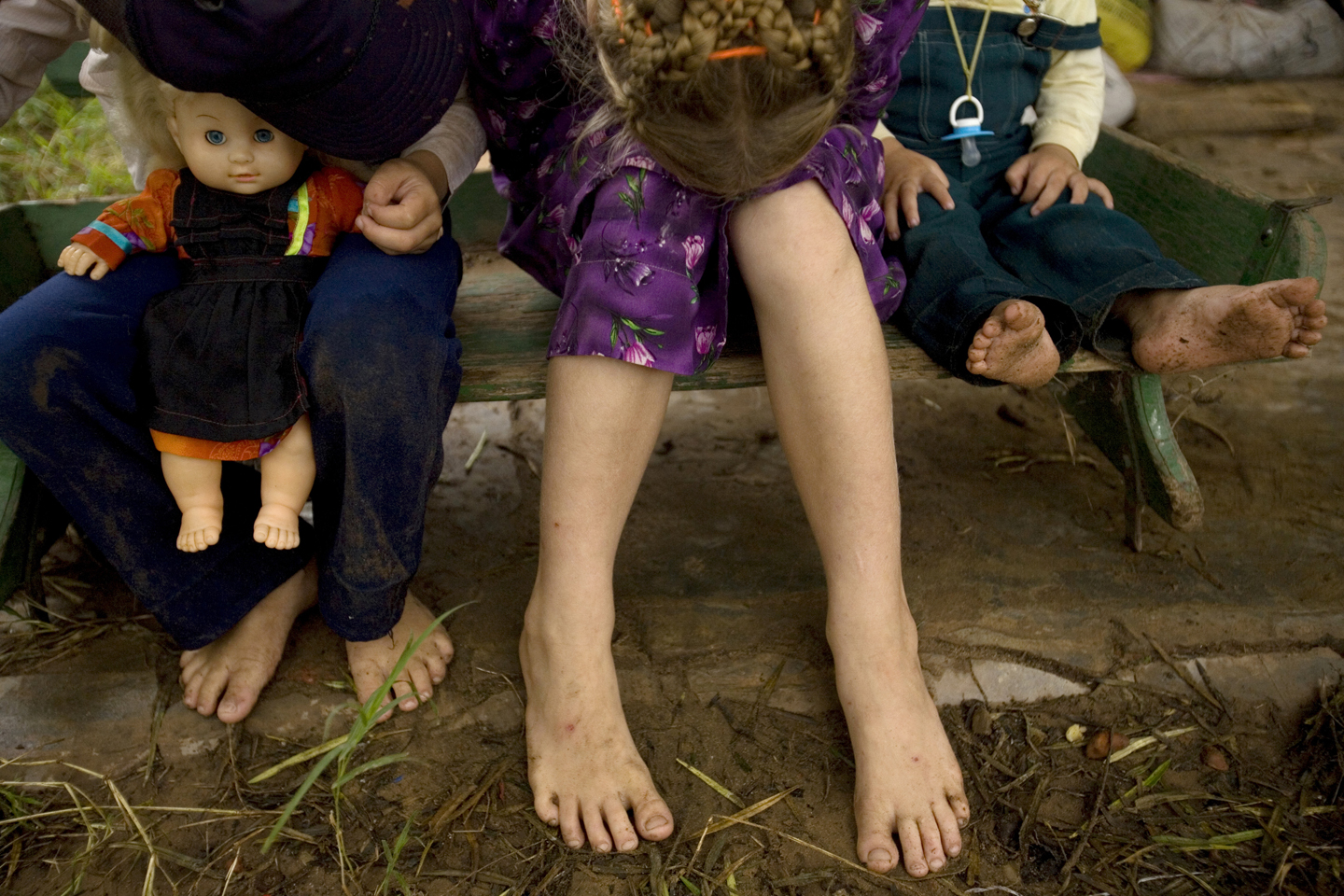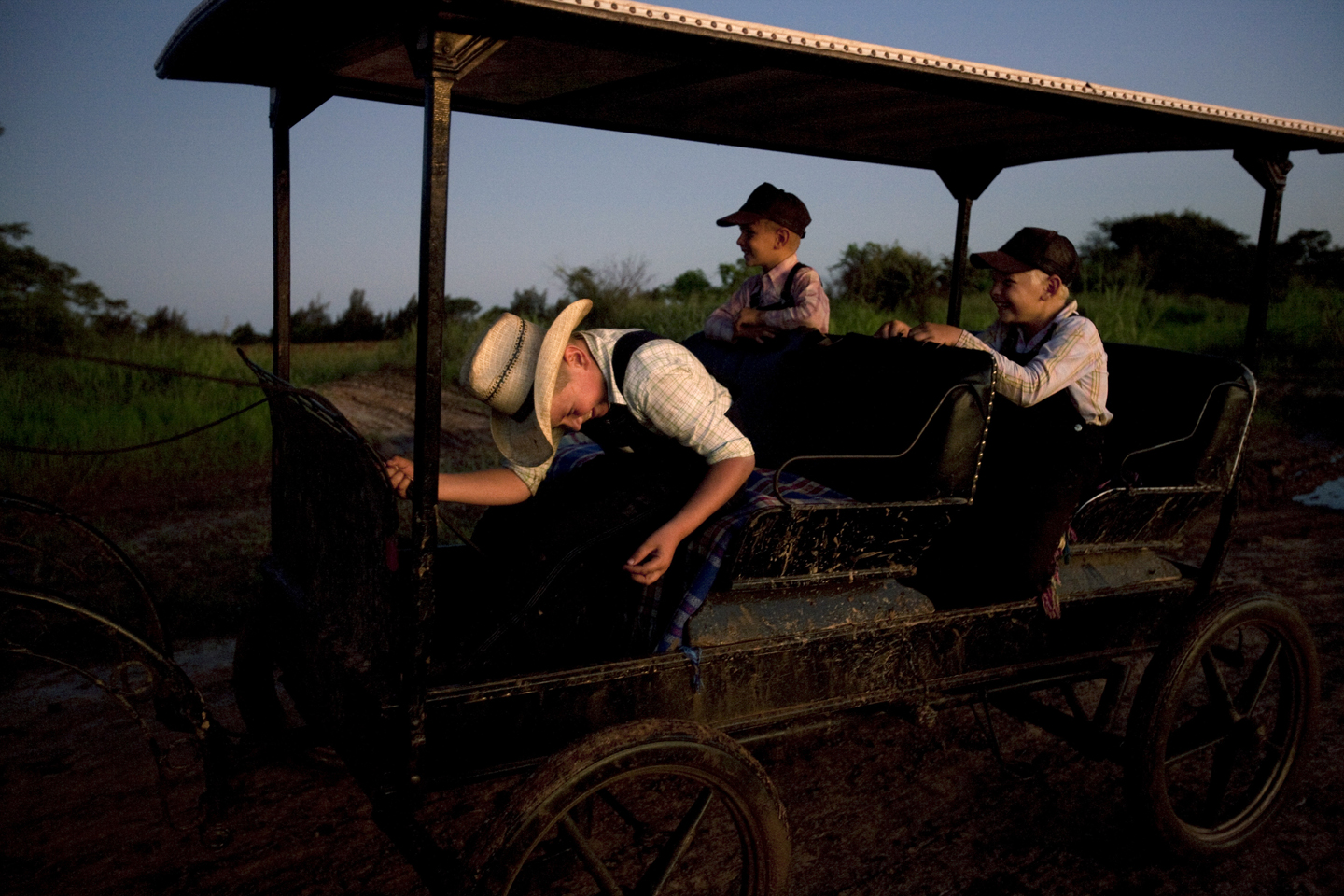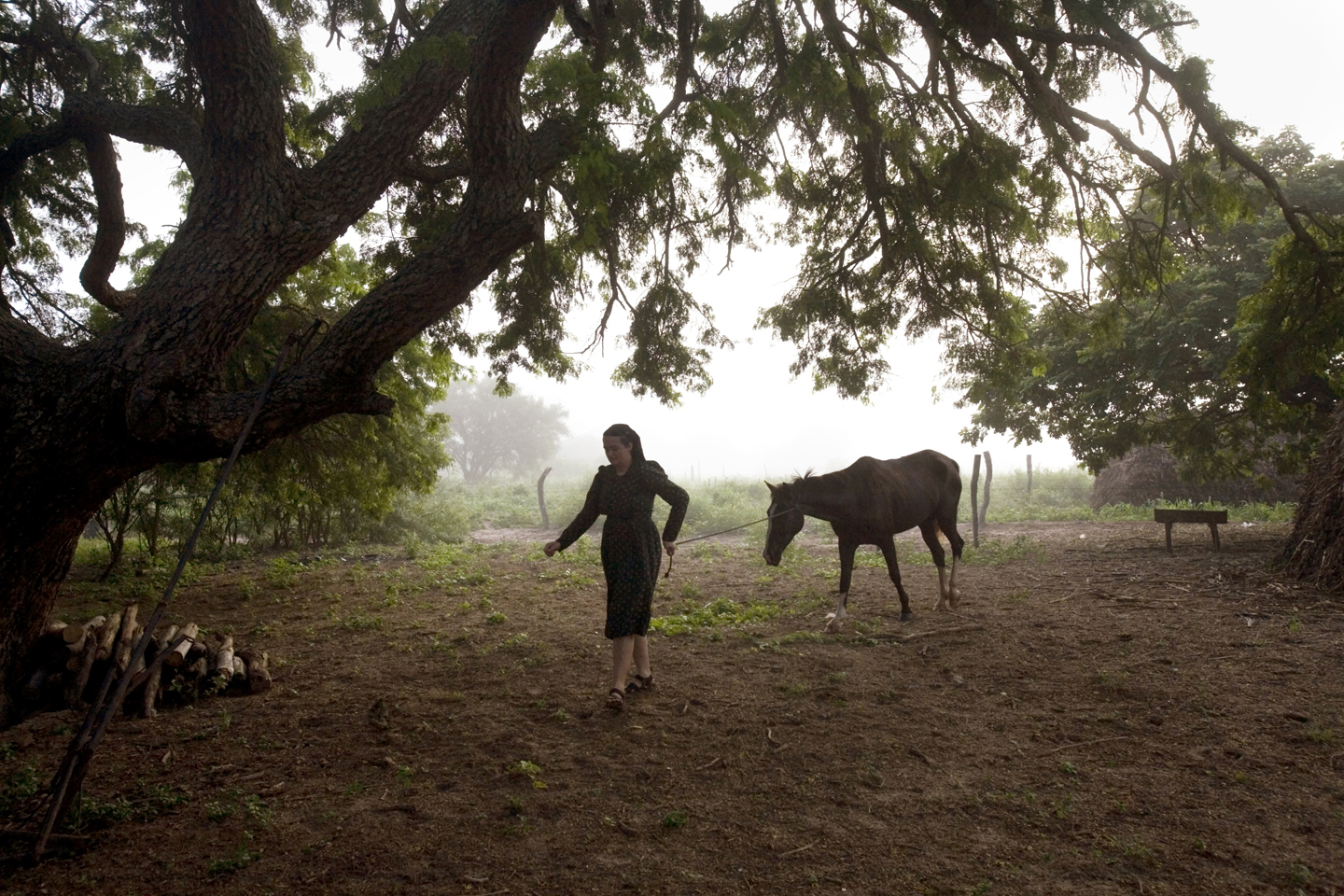Mennonites [by Karla Gachet & Ivan Kashinsky]
It was night. I had cut my hair, shaved my beard, and was dressed in blue overalls, a long-sleeve blue shirt, and a blue baseball hat. I was one of them. “Come, here”, Cornelius said. He was sitting with his wife in the corner of their dinning room staring at me seriously with spooky eyes. “It has been really great to have you here. It is a shame you have to leave so soon. What do you think about coming to live here, in our community, forever?”
“Forever?”
I thought for a second. What would it be like to become a Mennonite? No cars. No television. NO MUSIC! No way. “It has been great staying with you”, I politely replied, “but I can’t, I just can’t.”
I was dressed like a Bolivian Mennonite because I was preparing to do the unthinkable. I was getting ready to enter the Sunday church service in the Mennonite community of Santa Rita, Bolivia. The next morning, at 6:30, Abram cruised by the house in his carriage. “Just don’t take any pictures”, he warned, as the horse trotted down the beautifully lit countryside on the way to the chapel.
We were late. We sat on little wooden benches, the men on one side and the women on the other. No one dared to say a word. All of the sudden the entire room was filled with the thick sound of voices. They sang like it was judgment day and their souls depended on it. The golden light poured through the cracks of the walls threatening to break them down. Their voices penetrated my body, from my forehead to the depths of my intestines. Wow! Maybe there is a God.
For the next two and a half hours I listened to a priest read from the Bible in German. My back ached. Sleep threatened. The fear of being found out had worn off. All of the sudden everyone jumped up, rushed out to their carriages, and rode off without saying a single word to each other. Strange.
About a week before, Cornelius had courageously agreed to let us stay in his house. We observed as the girls went out to milk the cows in the morning and the men endlessly worked in the cheese factory. As the kids played in the evening light, it took me back to a story I did as an intern about a farm family in Iowa.
At night, the family of ten gathered around the dining room table as we showed them slideshows on our laptop. Their eyes widened in disbelief as we opened magazines with double page spreads of underwater worlds. Although these youngsters could cook a dinner for ten and make their own clothes from scratch, they hadn’t a clue about the outside world. Their school curriculum consisted of the Bible and nothing else. Basic knowledge of geography and history were totally absent.
Why are these people so painfully separated from the outside world?
“The chip,” Cornelius explained. “It is already happening in more advanced countries like Germany and the United States.” Cornelius went on to tell me how the bible clearly states that computer chips will slowly but surely be planted into the right hand or forehead of every human being on the planet. Those who resist will be murdered. “The chip is the 666,” he insisted.
The Mennonites, who have moved from Europe, to Russia, to Canada, to Mexico, and now to Bolivia, have always been outcasts. They have always searched for a simpler way of life in which they can practice their religion in peace. They are scared of technology and it’s ability to distract them from the path of Christ. Now, the ultimate enemy has arrived. The apocalypse is near and the devil has come riding in on the back the digital revolution. The Internet is the 666.
Back in Santa Cruz we indulged in wifi and frapachinos. Sometimes it’s nice to be evil.

